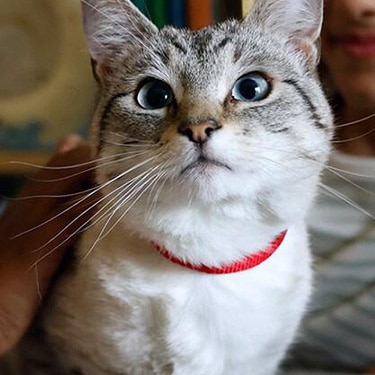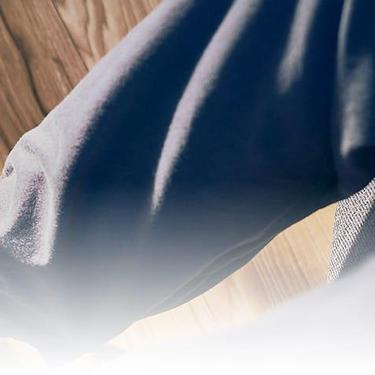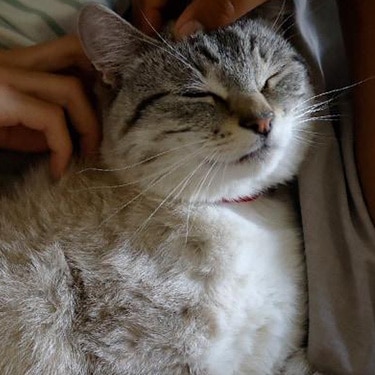
-
Find the right food for your petTake this quiz to see which food may be the best for your furry friend.Find the right food for your petTake this quiz to see which food may be the best for your furry friend.Featured products
 Small & Mini Mature Adult 7+ Dog Food
Small & Mini Mature Adult 7+ Dog FoodHill's Science Plan Small & Mini Breed Mature Adult Dog Food with Chicken is a complete pet food, specially formulated with ActivBiome+ Multi-Benefit Technology.
Tailored nutrition to support graceful ageing in small dogs. Specially made with a synergistic blend of nutrients for energy & vigor.Shop Now Perfect Digestion Small & Mini Adult Dog Food
Perfect Digestion Small & Mini Adult Dog FoodHill's Science Plan Perfect Digestion Small & Mini Breed Adult Dog Food with Chicken & Brown Rice supports ultimate digestive well-being & a healthy microbiome.
Shop Now Perfect Digestion Large Breed Puppy Food
Perfect Digestion Large Breed Puppy FoodPrecisely balanced nutrition with Hill's ActivBiome+ prebiotic blend actively contributes to supporting digestive health and overall well-being to help your pet feel their best
Shop NowFeatured products Hairball & Perfect Coat Adult Cat Food
Hairball & Perfect Coat Adult Cat FoodHill's Science Plan HAIRBALL & PERFECT COAT Adult cat food with Chicken is specially formulated to effectively help avoid hairball formation in adult cats while promoting a beautiful coat. Thanks to its mix of essential Omega-6 fatty acids, this food benefits the cat's skin and fur keeping them healthy and shiny. Our Advanced Fibre Technology helps reduce hairballs by naturally promoting their passage through the gut. This food is formulated with high-quality protein for a perfectly balanced, great-tasting recipe.
Shop Now Kitten Food
Kitten FoodTender chicken chunks in gravy for kittens, with omega-3s for healthy eye & brain development and high-quality protein to support muscle growth. With balanced minerals to promote strong bones & teeth.
Shop Now Hypoallergenic Dry Cat Food
Hypoallergenic Dry Cat FoodHILL'S SCIENCE PLAN Hypoallergenic Adult cat food with egg & insect protein is a complete pet food for adult cat 1–6 years old. It's formulated for cats with delicate skin and stomach, with limited high quality novel protein sources & no grain.
Shop Now -
Dog
- Dog Tips & Articles
-
Health Category
- Weight
- Food & Environmental Sensitivities
- Urinary
- Digestive
- Joint
- Kidney
-
Life Stage
- Puppy Nutrition
- Adult Nutrition
- Senior Nutrition
Cat- Cat Tips & Articles
-
Health Category
- Weight
- Skin & Food Sensitivities
- Urinary
- Digestive
- Kidney
-
Life Stage
- Kitten Nutrition
- Adult Nutrition
Featured articles The Right Diet For Your Pet
The Right Diet For Your PetLearn what to look for in healthy pet food & nutrition, including ingredients, quality of the manufacturer, your pet's age, and any special needs they have
Read More Understanding Your Pet's Microbiome
Understanding Your Pet's MicrobiomeLearn what a pet's microbiome is, how it contributes to your pet's gut & overall health, and why nutrition is important in maintaining healthy microbiomes.
Read More Pet Food Storage Tips
Pet Food Storage TipsWhere you store your cat and dog food can make a big difference in the quality and freshness once it is opened. Here are some common questions and recommendations for optimal storage for all of Hill’s dry and canned cat and dog food.
Read More -


HAPPY HOLIDAYS
Everyone loves a holiday. Or do they? Many cats really don't like travelling, but if they get used to it from an early age it's not normally a problem. Lots of holiday destinations are pet-friendly, so make enquiries before you make any plans.


Tasty Tips
She might be happier at home
Before you take your kitten away with you, you'll need to assess her ability to travel. If she's not completely well, travelling could be very stressful so it would be better to leave her at home and arrange for someone to look after her during your absence. Even if your kitten is healthy and you don't plan to take her away with you, having a pet sitter to live in your home is ideal, since this causes the least disruption to your kitten's life. Merely asking someone pop in to feed her twice a day is not sufficient. Kittens shouldn't be without human company for more than a few hours, so you'll need to arrange full-time care for her. If this isn't possible, book her in at a reputable, friendly and well-staffed boarding kennel or cattery.
Whether your kitten is staying at home, going to a cattery or accompanying you, make sure that her vaccinations dare up to date and that you've allowed sufficient time for them to take effect before your departure. Your kitten might be a little quiet for a day or two after a vaccination, so travelling at this time would be unwise. Flea treatment should be up to date, as should insurance - and make sure that your policy covers travel.
The Pet Travel Scheme (UK specific travel legislation section)
With the introduction of the Pet Travel Scheme, you can now take your pet to certain EU countries without her having to be quarantined after your return. Check out the DEFRA website (www.defra.gov.uk) for the latest information, but as a rule, you'll need to follow this checklist:
Your kitten must be fitted with a microchip so she can be identified. Talk to your vet about this easy procedure - you'll need to wait until she's about five to six months old.
Your kitten's vaccinations must be up to date.
After the rabies vaccination, your kitten will need a blood test to make sure she has an adequate level of protection
You will need an EU pet passport. Look on the DEFRA website for how to obtain one.
You must arrange approved transport for your pet, on an authorised route. You can talk to your travel operator about the options.


One of our staff authors prepared this article for you
Related products

HILL'S SCIENCE PLAN Hypoallergenic Adult cat food with egg & insect protein is a complete pet food for adult cat 1–6 years old. It's formulated for cats with delicate skin and stomach, with limited high quality novel protein sources & no grain.

Tender chicken chunks in gravy for kittens, with omega-3s for healthy eye & brain development and high-quality protein to support muscle growth. With balanced minerals to promote strong bones & teeth.

Hill's Science Plan Adult Cat Food with Chicken is a complete pet food, specially formulated with ActivBiome+ Multi-Benefit Technology.
This food is specially formulated to fuel the energy needs of cats during the prime of their life.

Hill's Science Plan HAIRBALL & PERFECT COAT Adult cat food with Chicken is specially formulated to effectively help avoid hairball formation in adult cats while promoting a beautiful coat. Thanks to its mix of essential Omega-6 fatty acids, this food benefits the cat's skin and fur keeping them healthy and shiny. Our Advanced Fibre Technology helps reduce hairballs by naturally promoting their passage through the gut. This food is formulated with high-quality protein for a perfectly balanced, great-tasting recipe.
Related articles

Discover what you can do to spot and support a sensitive cat stomach. See what routines and food you can implement to help your cat be happy and healthy.

Discover which cat toys games your feline friend might like, and how they are great sources of exercise. Explore our library of articles to learn more.

Find out about how you can support your cat's digestion to boost overall health. Diet is key to a long and happy life for your cat, so discover what you can do.

When learning how to train your cat, you'll start with very basic first steps that both reward good behavior and discourage the bad.

Put your cat on a diet without them knowing
Our low calorie formula helps you control your cat's weight. It's packed with high-quality protein for building lean muscles, and made with purposeful ingredients for a flavorful, nutritious meal. Clinically proven antioxidants, Vitamin C+E, help promote a healthy immune system.
Put your cat on a diet without them knowing
Our low calorie formula helps you control your cat's weight. It's packed with high-quality protein for building lean muscles, and made with purposeful ingredients for a flavorful, nutritious meal. Clinically proven antioxidants, Vitamin C+E, help promote a healthy immune system.

